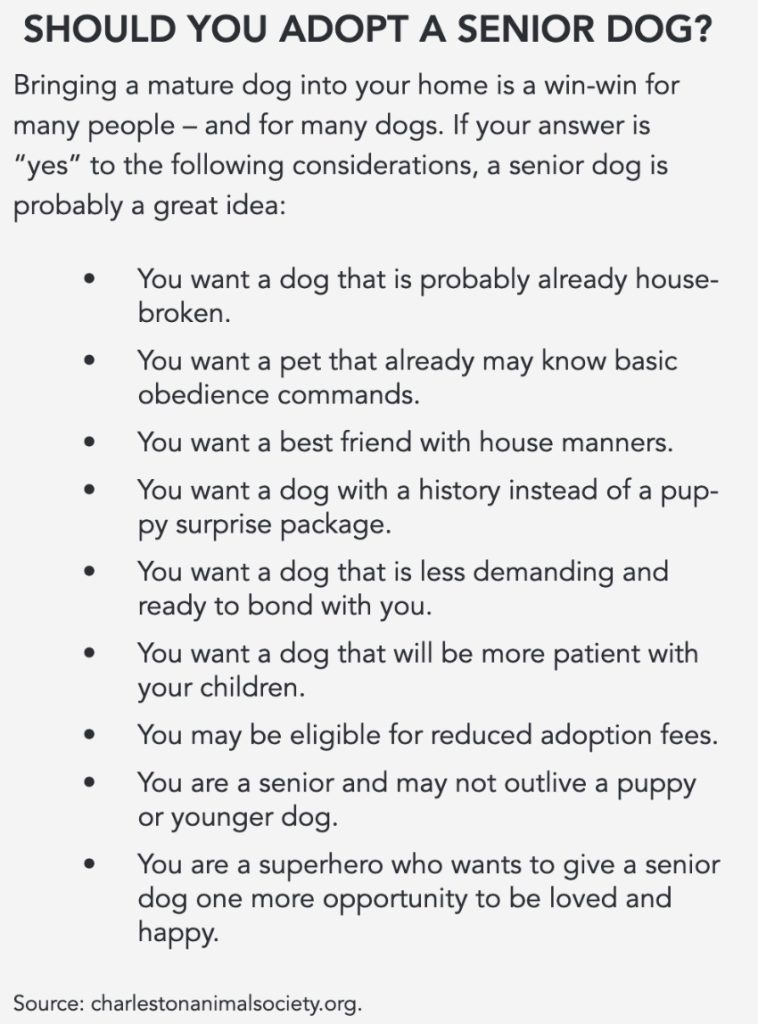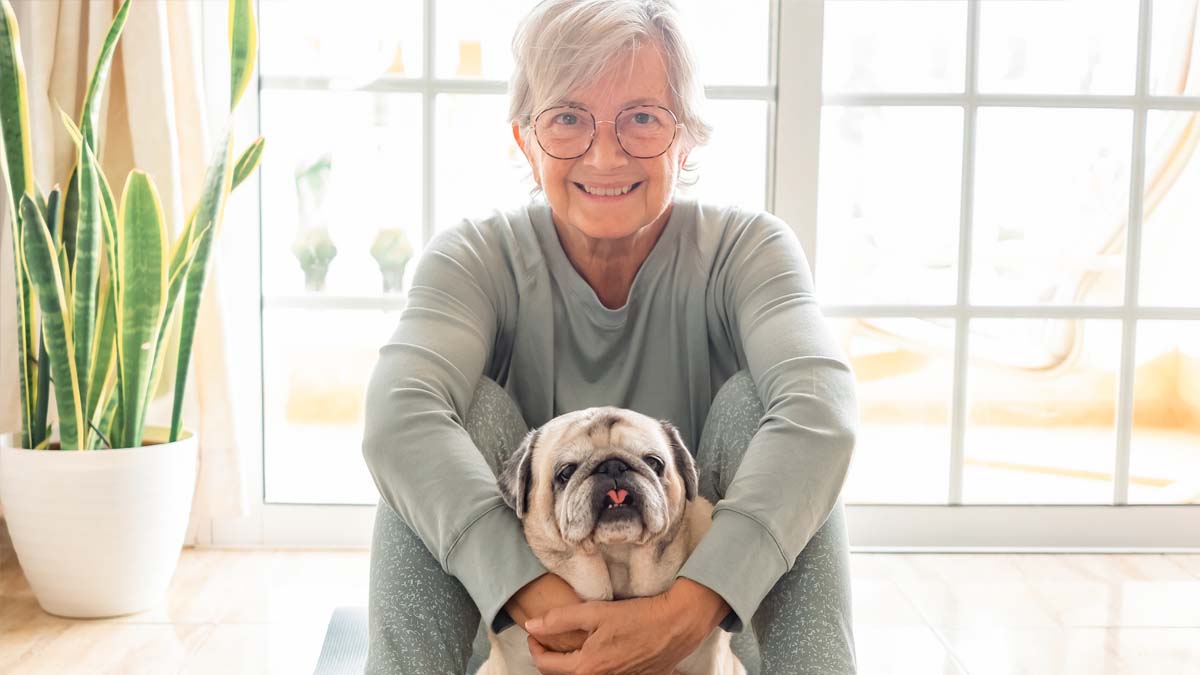Was it only yesterday that you brought home that bouncy, four-legged furball with the squeaky bark and the mischievous eyes? Just how long did it take for your newest family member to assume ownership of your slippers, your favorite chair, your home and your heart? Like it or not, time passes and our beloved pets age much faster than we would wish.
If your hairy best friend has reached the age of 7, the senior years have begun, according to Sara Schmitz, DVM, owner and chief of veterinary staff at Five Forks Animal Hospital in Simpsonville.
“As our older pets age, their needs change and change faster, so preventive health care and more frequent medical checks become important to their overall quality of life,” Dr. Schmitz cautioned. “In addition to general health checkups, paying more attention to potential dental issues should be part of senior care. Yearly urine and blood labs can help stay ahead of diseases and potential health issues related to the aging process.”
Diets may also need to be adjusted.
“Obesity in senior dogs can not only shorten a pet’s life, but extra weight also increases joint stress and strain,” Dr. Schmitz explained. “In addition to cutting back on treats and snacks, you may need to switch to a dog food that has lower calories per cup, and you may also want to talk to your vet about nutritional supplements.”
One of the most painful but responsible parts of senior pet ownership is handling end-of-life care for your dog. Dr. Schmitz acknowledged how difficult this is for pet owners, but she also noted that veterinarians and vet techs are trained to accept and assist with this last act of service in the most compassionate and painless manner as possible.
“When asked, we help loving pet owners process whose quality of life is being most affected and what the next steps should be,” she offered.
Dr. Schmitz takes that commitment seriously and is willing to have those difficult conversations, especially when a pet is having more bad days than good days: “This is what I signed up for – to relieve animal suffering and to do no harm.”
Not all senior pets are afforded the luxury of living out their final years in the comfort and security of the home they have always known. Some are abandoned, left behind or dropped off on a rural back road. If they are fortunate, they will be found and taken to a caring animal shelter.
Aldwin Roman, CAWA, CACO, is vice president of operations and strategy for the Charleston Animal Society, the Charleston area’s largest animal shelter. He said about 10% of the dogs received by his organization are seniors, often with some level of health care needs. In 2022, the shelter accepted and cared for approximately 300 older dogs. Only about 17% were surrendered by their owners; the rest were brought in by animal control, neighbors or kindly bystanders.
Roman is a huge proponent of senior dog adoptions. While he concurs that seven is the year when dogs are considered seniors, he also points out that little dogs tend to live much longer lives, even making it into their late teen years. The fact is that many older dogs have multiple years of enjoyment ahead of them if they can just be part of the right family.
Roman explained: “We strive to medically treat each otherwise healthy and treatable dog, regardless of its age. We even place some senior dogs in foster homes to better assess their behavior, especially since confined dogs act differently in the shelter than they would in a home environment. We want to make the right match for each adopted dog and family.”
“Sadly, our senior dogs are often overlooked by the family that comes in ready to adopt a new pet and with its heart set on a cute little puppy,” he continued. “But there are so many good reasons to consider adopting a mature dog. For one example, they tend to adjust more quickly to a new home environment because the majority of them have experienced home life before. At the Charleston Animal Society, we do all we can to help our senior dogs find loving homes and enjoy their final days.”
To learn more: Charleston Animal Society • 843-747-4849 • charlestonanimalsociety.org.
By Janet E. Perrigo

